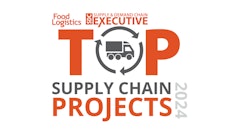
Takeaways:
- Don’t rely only on boiler plate contracts.
- Your contract must have clarity for both parties so that they know what risks they have to protect against, indemnify and insure.
Even if you weather uncertain economic times, what if your suppliers do not? As companies have successfully reduced inventory and more tightly controlled their supply chain they have relied ever more on sole-sourced, just-in-time inventory management. As all companies, including your suppliers, struggle to succeed, what if that sole-sourced, just-in-time inventory does not arrive? Any supplier with whom you contract can bring your production to a halt simply by not delivering their product. Without managing, mitigating and allocating this risk, even the best run company can be brought to its knees by one failing supplier.
Protect yourself from these contingencies. Negotiate protections against this risk into your contracts. Be leery of boiler plate provisions, know how to allocate the risks inherent in a supply chain, and pay special attention to those provisions that raise the brightest red flags.
Boiler plate
Every purchasing manager and every lawyer has form contracts. Where people run into trouble is when they consider these forms to be the ending point, not the starting point. Look into your desk and the chances are that the form contract you use could be years old. It may not reflect changes in your business, the law, or other realities of the market place. Boiler plate is a great place to start, but you need to consider each supply contract to be potentially unique.
When you rely on boiler plate contracts as an ending point, you are bound to run into a number of problems. First, superfluous provisions inapplicable to the relationship create confusion. These extra provisions can create ambiguity and uncertainty which lead to delays and excess cost when trying to enforce your contractual rights. Second, the one size fits all language of boiler plate does not take into account which party might have the money, property or overall leverage if a supplier does run into financial trouble. For example, does the supplier or the purchaser own the tooling at issue? That tooling could be more important than any individual product supplied and how the tooling is handled is bound to differ supplier to supplier. Lastly, it is best to consider whether any specialized provisions need to be included for certain suppliers. This could include provisions about ownership of and rights to intellectual property, or antitrust issues related to pricing. Relying on boiler plate contracts, or the last contract you signed, as an ending point instead of a starting point is bound to result in missed ways to mitigate the risks and uncertainty created when your supplier has financial problems.
Allocating your risk
Once you recognize that you need to rely on your boiler plate only as a starting point, you can better start to tailor contracts to allocate the risks inherent in each of them. This is done principally through insurance, indemnification, and limitations.
With margins thin and profits down, one moderate liability or unexpected loss can push a supplier over the brink, not to mention the purchaser. Require suppliers to have not only commercial general liability insurance, but other insurance to protect them (and you) from losses. Requiring suppliers to have adequate property, workers compensation, umbrella, and other routine insurance helps to mitigate your own risk. For much of that insurance coverage, you can require that you be added as an additional insured. Similarly, require general and specific indemnifications from your suppliers to properly allocate risks associated with their product to them, and their insurance. Consider what you need to be indemnified for, who controls the settlement of any indemnified claim and who gets to pick counsel. Again, not negotiating such uncertainties is bound to lead to confusion and risk. For your limitations, negotiate liability and remedy limitations. These are separate and distinct and you want clarity for both parties so that they know what risks they have to protect against, indemnify and insure.
Red flags
One of the keys for some of the provisions to red flag is how they interrelate. For example, everyone considers pricing to be key contract provisions. But, few consider these terms in relation to other provisions such as payment terms which is often boiler plate. It may even be in your interest to have shorter payment terms so as to provide the supplier with cash to purchase raw materials that it needs to make what you buy. Giving yourself 30 days to pay for supply may imperil a supplier who ends up having to take out unfavorable loans to meet its production requirements.
Another red flag provision that often is boiler plate is dispute resolution. Agreeing in advance as to how your disputes will be resolved with a supplier can help ensure that your supplier can continue to supply. Does it require a supplier to continue to supply while the dispute is worked out? Is the process streamlined to allow for a quick resolution? Which dispute resolution body will it be in front of? Have you expressly allowed for emergency relief under the appropriate rules and procedures? Does the dispute resolution allow you to recover tooling, even on an expedited basis? These kinds of questions are often left unanswered, leaving your company imperiled should a supplier suffer losses or raise disputes over supply with you.
Protect yourself in the contract
No one likes to think of their relationship with a supplier having any bumps or bruises when they first start working together. Unfortunately, every company, every industry and most every supplier is not immune to the vagaries of the markets. This will surely result in some threat, major or minor, to your supply chain at one time or another. Investing an ounce of prevention in your contract negotiations to protect yourself will surely lead to saving a pound of cure later when problems do arise.
Jeffrey A. Soble is a partner with Foley & Lardner LLP, where his practice focuses on class action defense, post-transaction disputes, products liability, construction losses, and general contract and tort law. He is experienced in supply chain management and contract enforcement, in particular with limited or sole-source suppliers and just-in-time suppliers.

























